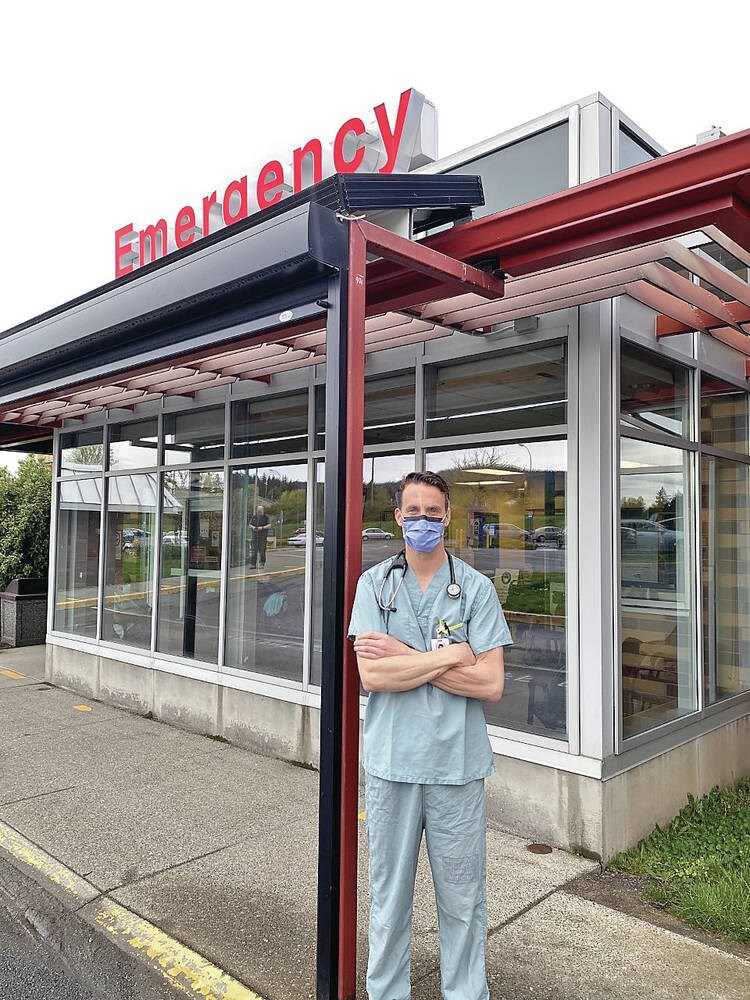Health Minister Adrian Dix’s planned tour of B.C. hospitals this summer will give him a close-up view of emergency rooms, what he called a bellwether of what happens “everywhere in the health-care system.”
With not enough primary and urgent-care physicians, patients go to the emergency room, Dix said.
Doctors might admit a patient, but there might be no beds because they’re filled by people waiting for a long-term care placement, he said.
“And so the frustration for many emergency room doctors, I think … is that all of the problems of the health-care system end up for them in the emergency room and they’re dealing with those problems.”
During a visit to problem-hit Surrey Memorial Hospital this past week, Dix announced he would spend much of the summer visiting facilities to get information and implement change.
Dix noted that 38,000 net new health care workers have been added since 2017, but “we’re going to need 38,000 more in the next five years and 38,000 more net in the five years after that.”
The health minister said he’s heard from emergency room physicians that their biggest cause of stress is when they need to admit a patient but there’s no bed.
Saanich Peninsula Hospital emergency room physician Dr. Jeff Unger said the situation hasn’t improved much in the month since he first warned of possible ER service reductions and overnight closures at the hospital due to staffing shortages.
From now until the Labour Day weekend, more than half the days will see at least one day shift that’s not covered by an emergency physician, he said.
Closures and service reductions have only been averted — with the exception of one night last month — due to “greatly overworked staff who have filled in last-minute,” he said.
Dix said it’s a situation that’s also difficult for patients, who may receive a serious diagnosis, only to wait in a hallway for a bed. “[That] is not the patient experience we need — we need to help people in their most difficult moments.”
Unger said there are multiple sites on the Island with “desperate human resources staffing crises, added on top of rapidly escalating patient needs.”
Contingency planning is ongoing throughout the health authority, he said.
Dix said a new contract is being worked on with hospitalists — family physicians who work in hospitals caring for patients — in the Fraser Health Authority, and an offer is on the table for hospitalists at Surrey Memorial Hospital.
Island Health is also talking with hospitalists at Nanaimo Regional General Hospital regarding a new contract.
Doctors of B.C. president Joshua Greggain said the association wants to see contracts for hospitalists and hospital-based physicians, including general internal medicine physicians, negotiated and agreed to on a provincial basis.
The Doctors of B.C. negotiates the overall Physician Master Agreement for physicians but several years ago anesthesiologists negotiated their own contract, setting a precedent for other groups to do the same, said Greggain.
If Fraser Health hospitalists successfully negotiate a contract, Greggain said there’s an opportunity for every contract for hospital-based medicine in the province to be “lifted up.”
“I hope this is a move towards some equity when it comes to hospitalist or hospital-based care payment, so that we can then use the human health resources to shift around a response to volume and not simply because there’s a few extra dollars being paid at one hospital site or the other,” said Greggain.
“We aspire for equity and parity for people doing great work across the province. We will do well if we land a contract that hits all corners of the province.”
— with a file from The Canadian Press
>>> To comment on this article, write a letter to the editor: [email protected]



